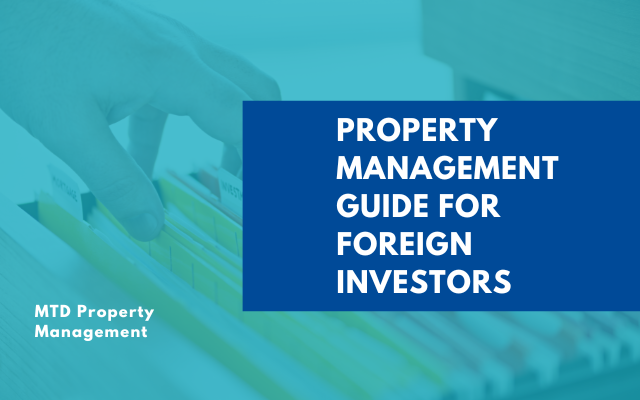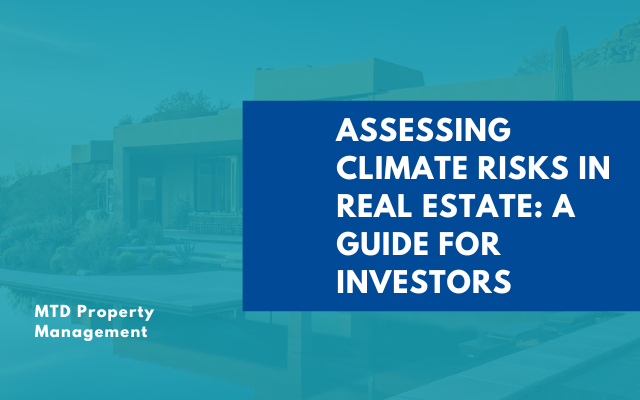
Key Takeaways
- Assemble a Reliable U.S.-Based Team: Building a trustworthy local team—including a property manager, real estate attorney, and CPA—is essential for effective remote property management and ensuring compliance with U.S. laws.
- Leverage Professional Property Management: A skilled property manager handles daily operations such as tenant screening, rent collection, and maintenance, providing regular updates to keep you informed and your investment secure.
- Understand Legal and Tax Obligations: Consulting with legal and tax professionals helps navigate complex regulations, optimize tax strategies, and establish appropriate ownership structures like LLCs to protect your assets.
- Consider Business Entities for Ownership: Purchasing property through entities such as LLCs or corporations can offer liability protection and potential tax benefits, making them a strategic choice for foreign investors.
Investing in U.S. real estate offers significant potential for international buyers, especially as the market continues to demonstrate resilience and steady growth. Yet, owning property from abroad involves unique challenges.
Successfully managing these investments requires navigating complex tax laws and overseeing daily operations, making effective property management crucial to protect your assets and secure long-term gains.
This comprehensive guide from MTD Property Management outlines essential steps for international investors to manage U.S. real estate effectively, from building a reliable local team to selecting the optimal ownership structure and understanding tax obligations.
Build a Trustworthy U.S.-Based Team
A foundational element of managing property remotely is assembling a skilled team of local professionals. Your core support should include a dependable property manager, an experienced real estate attorney to help with your rental agreement, and a CPA well-versed in international tax issues.
Property Manager: Your On-The-Ground Partner
The property manager acts as your primary representative, handling day-to-day responsibilities such as tenant screening, rent collection, maintenance scheduling, and property inspections. A strong manager keeps you regularly updated on tenant matters, property conditions, financial performance, and key terms every investor should know.
When choosing a property manager, prioritize candidates with deep local market knowledge and a proven history of managing properties for absentee owners. Their familiarity with regional rental trends, regulations, and maintaining curb appeal is invaluable.

In addition, excellent property managers will not only help set competitive rental rates but also ensure your property remains compliant with local laws and ordinances. Look for professionals who offer transparent communication and reliable maintenance coordination to protect your investment.
Legal and Tax Advisors: Essential for Long-Term Success
While your property manager manages operational logistics, legal and financial experts are critical for sustaining your investment.
- Real Estate Attorney: A competent lawyer ensures all contracts and legal agreements are properly drafted, enforceable, and comply with state and local regulations. They also assist in resolving disputes or legal challenges.
- Certified Public Accountant (CPA): A CPA specializing in cross-border real estate taxation guides you through the complexities of U.S. tax law, helps maximize deductions, and ensures compliance to avoid penalties. They also advise on tax-efficient ownership structures tailored for foreign investors.
During your selection process, verify each professional’s experience with international clients and confirm clear communication protocols that suit your needs.
Purchasing U.S. Property Through a Business Entity
Foreign investors can acquire U.S. real estate via business entities, which often provide benefits like liability protection, favorable tax treatment, and streamlined portfolio management.

Common structures include limited liability companies (LLCs), corporations, and limited partnerships, each offering different advantages depending on the investor’s goals, risk tolerance, and tax situation.
Using an entity can help shield personal assets from legal claims or property-related liabilities, a key concern for investors managing multiple properties. Additionally, business structures may allow for greater flexibility in profit distribution, estate planning, and succession strategies, especially for families or investment groups.
Selecting the Right Entity
Choosing the appropriate legal structure is a strategic decision impacting liability and tax exposure. Some of these options are:
Corporation
Separate legal entities offer strong liability protection and potentially higher capital gains taxes, especially for personal-use properties.
Limited Liability Company
LLCs combine liability protection with pass-through taxation. They are popular among foreign investors but subject to annual fees and state regulations.
Limited Partnership (LP)
LPs feature general partners with full liability and limited partners liable only up to their investment. They are flexible for shared ownership.
Each structure has pros and cons, so consulting legal and tax professionals before deciding is essential.
Navigating Tax Responsibilities for International Owners
U.S. tax regulations can be intricate for foreign investors, making it vital to understand your obligations to avoid compliance issues and unexpected expenses.

Taxation of Rental Income
Rental income from U.S. properties is generally classified as passive income by the IRS. The default tax treatment involves a 30% withholding on gross rental income, meaning tax is applied to total rent received, not net profit.
If your country has a tax treaty with the U.S., you may qualify for a reduced withholding rate by filing IRS Form W-8ECI or W-8BEN. These forms establish your eligibility for treaty benefits and help lower the standard 30% withholding on U.S.-source income.
Alternatively, you can elect to treat your rental income as “effectively connected” with a U.S. trade or business. This allows you to deduct expenses such as mortgage interest, maintenance, insurance, and property taxes. To take advantage of this treatment, you must file an annual U.S. tax return, Form 1040-NR for individuals or Form 1120-F for business entities.
Capital Gains and FIRPTA Compliance
When selling U.S. real estate, foreign investors must consider capital gains tax and the Foreign Investment in Real Property Tax Act (FIRPTA). FIRPTA mandates that buyers withhold up to 15% of the sale price when purchasing property from non-resident sellers.
To file tax returns and reclaim any withheld amounts, you need a Taxpayer Identification Number (ITIN). Proper reporting involves submitting Form 1040-NR for individuals or Form 1120-F for entities.
Filing Requirements and Deductible Expenses
Rental income is subject to federal income tax based on progressive rates. However, you can reduce taxable income by deducting qualified expenses such as:
- Mortgage interest
- Property taxes
- Repairs and maintenance
- Insurance premiums
- Property management fees
Collaborating with a CPA experienced in international real estate ensures accurate tax treatment and timely filings.
Bottom Line
Investing in U.S. real estate remains a compelling opportunity for foreign investors, but success depends on careful preparation and diligent management. Every choice, from the legal structure to tax compliance, affects your returns and risk exposure.
The cornerstone of thriving as an absentee owner is building a dependable local team. With a skilled property manager, knowledgeable attorney, and expert CPA, you can confidently oversee your investments and focus on growth rather than daily operational challenges.
If you’re seeking a trusted partner to handle your U.S. property management needs, reach out to
MTD Property Management today. Our local expertise and comprehensive services help international investors maximize returns while minimizing the complexities of remote ownership.









